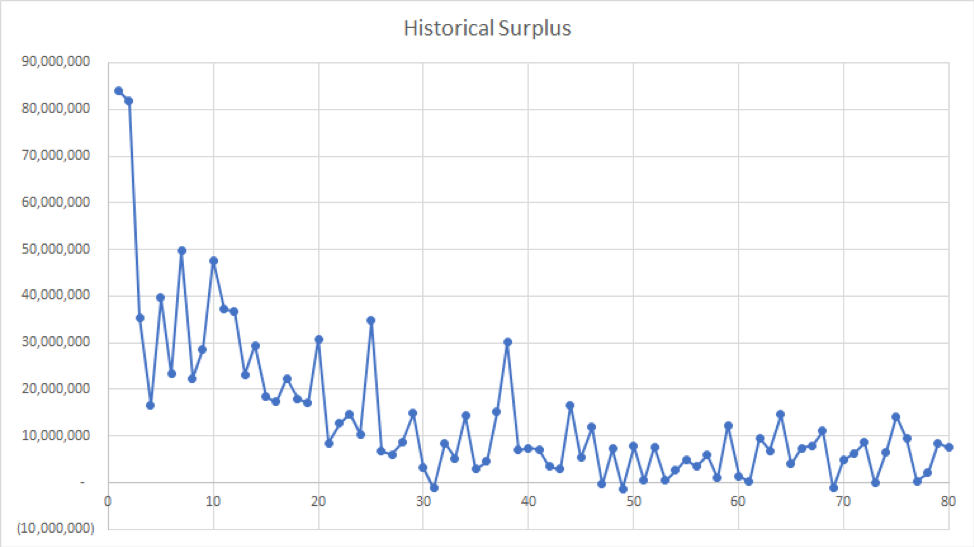Focusing on talent, Doesn’t 30 teams dilute the product relative to 26? Why is 30 teams the optimal level of dilution?No, it just shouldn't expand any further. Whether you're doing it gradually or all at once doesn't change the fact that there isn't enough talent or viable markets to carry 36 teams and systems without diluting the product.
Focusing on economics, Why is Kansas City or Cincinnati a more viable market than Nashville or Las Vegas?
Japanese stars are coming with increasing frequency, Cuba has just opened, Korean baseball is improving. The travel-industrial complex is preparing kids for quicker transition to the majors. I don’t see a problem at all.Papelbon’s Poutine said:Maybe down the road we start to see more athletes opt for baseball over football due to the injury concerns and CTE, but until then, it's not really debatable.
Tanking is a separate problem that can be addressed by penalizing teams that do it.Papelbon’s Poutine said:Also, you decry tanking, but you want to make the pool of teams that have no shot bigger? And maybe you could extrapolate on why they "should" have made those incremental expansions you suggest.
They expanded in 1977, then again in 1993 and then in 1998. It’s been 21 years since then, and at this point you’d be looking at 24 years before it realistically could happen. This is a pure power-play by the monopoly owners. They should be regulated like a public utility.
It’s a bonus for baseball players and a boost to the economy in 6 major league cities and the addition 36 minor league cities that would need to be created. Fans will come no matter what.Papelbin’s Poutine said:Why is this a bonus to me or any fan?




